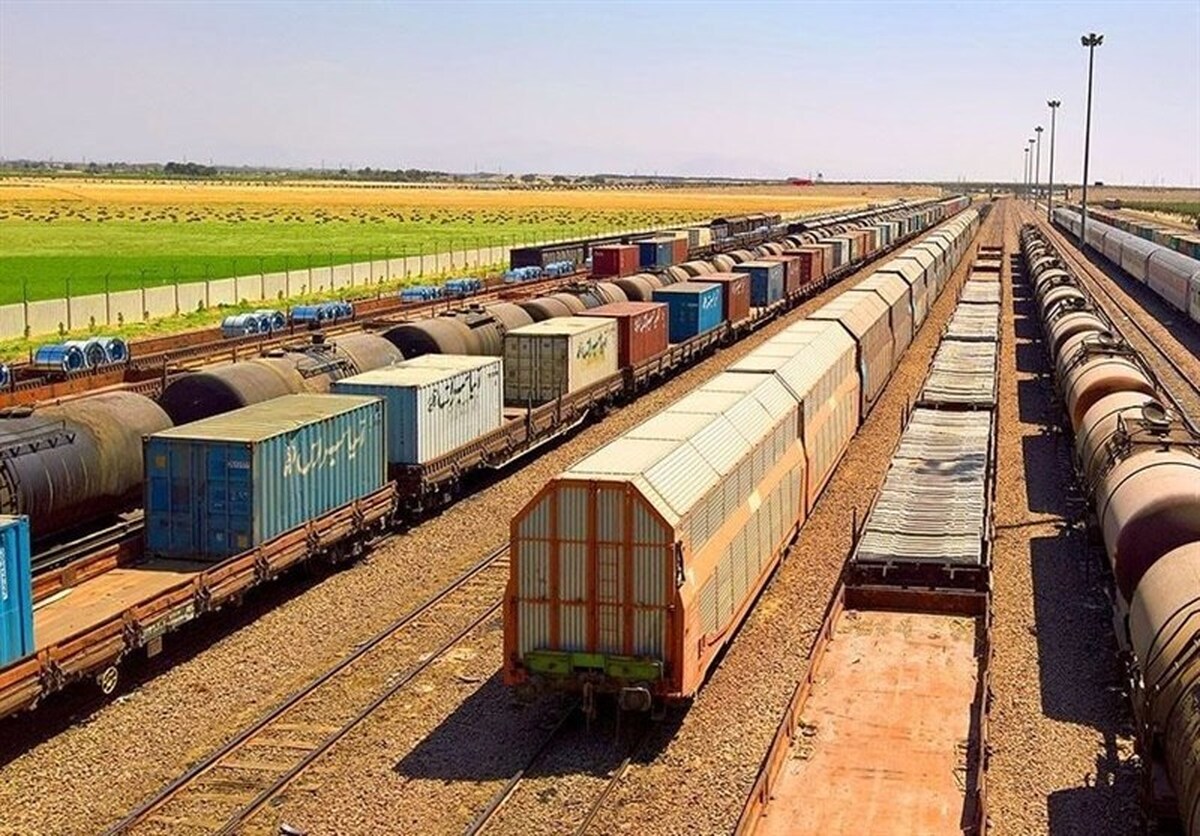
Iran's Trade With Latin America Tops $1 Billion in 11 Months
EghtesadOnline: Iran traded 1.55 million tons of non-oil commodities worth $1.12 billion with Latin American countries during the 11 months to Feb. 19, latest data released by the Islamic Republic of Iran Customs Administration show.
Trade with Brazil stood at 1.19 million tons worth $619.56 million, for the Latin American country to top the list of Iran’s partners in the region.
It was followed by Argentina with 325,505 tons worth $455.6 million and Venezuela with 32,811 tons worth $37.13 million.
Iran’s exports totaled 326,818 tons worth $139.81 million during the period under review.
Brazil topped the list of export destinations among Latin American nations with 291,990 tons worth $114.96 million. It was followed by Venezuela with 32,671 tons worth $20 million and Mexico with 374 tons worth $1.78 million.
Imports, which stood at 1.23 million tons worth $983.54 million during the period under review, mainly came from Brazil with 897,203 tons worth $504.6 million, Argentina with 324,919 tons worth $454.32 million and Venezuela with 140 tons worth $17.13 million.
Latin America is a group of 20 countries and 13 dependencies in the Western Hemisphere where Spanish, French and Portuguese languages are predominantly spoken. The region covers an area stretching from the northern border of Mexico to the southern tip of South America, including the Caribbean.
Joint Chamber of Commerce With Brazil
Iran-Brazil Chamber of Commerce was inaugurated in a ceremony held in the presence of Iranian and Brazilian officials and parliament members, Mehr News Agency reported on Nov. 20, 2021.
Addressing the gathering, Iran's Ambassador to Brazil Hossein Gharibi expressed satisfaction with the inauguration of such an institution for Iranian and Brazilian private sectors.
The envoy called for the expansion and diversification of relations between the two sides.
Brazil is an influential member of Mercosur, he added, noting that Iran also boasts a good market and can facilitate relations between Mercosur and Eurasian countries.
Ahmad Naderi, the head of Iran-Brazil Parliamentary Friendship Group, said with the opening of the chamber, exports from Iran to Brazil will increase to balance trade between the two countries, as imports from the South American country currently outweighs exports.
He noted that Brazil is the eighth largest economy in the world and Iran's most important trading partner in the Americas.
Call for Normalization of Trade Tariffs With Brazil
Iran annually imports $5 billion worth of essential goods from Brazil at a customs duty rate of up to 4% while the Islamic Republic’s exports to the South American country is less than $100 million per year, says Fakhreddin Amerian, the head of the joint commerce chamber, adding that Brazil imposes over 100% in duties on Iranian exports.
Speaking to ILNA, Amerian called on parliamentarians to pass a bill for the formation of a preferential trade agreement between the two countries with the aim of cutting Brazil’s import tariffs on Iranian goods for a more balanced bilateral trade regime.
“Iran can boost its export of petrochemical products, gasoline, pistachio, raisins and dates to Brazil,” he added.
The official noted that Iran imports 50-60% of its essential goods from Brazil.
Also known as necessity goods, essential goods are products consumers will buy, regardless of changes in income levels.
Urea From Iran in Exchange for Food From Brazil
Brazil’s Minister of Agriculture, Livestock and Supply Tereza Cristina arrived in Iran last month for a four-day visit.
According to Agencia Brasil, the national public news agency, run by the Brazilian government, the minister will pursue a business agenda in fertilizers for the agricultural sector, with a focus on importing Iranian urea.
The Brazilian minister met with Iran’s Agriculture Minister Javad Sadatinejad, as well as with members of the Brazilian-Iranian Chamber of Commerce.
Cristina paid a visit to Shiraz Petrochemical Company, an important urea producer, and to the Shiraz Chamber of Commerce.
"Brazil is a major food exporter to Iran and also a major fertilizer importer - mainly urea – from Iran. I am sure that this will be a very successful mission and many business opportunities shall arise," wrote the minister in a social media post. She took a delegation of Brazilian businessmen with her.
In 2020, Brazil exported to Iran $1.9 billion in agricultural products, e.g., corn (64.4%) and soybeans in grains (21.2%). Sales of Iranian agricultural products to Brazil totaled $2 million in 2020, mostly walnuts, chestnuts, raisins and other dried fruits.
Brazil currently imports over 80% of the fertilizers used domestically. Because of this external dependence and the risk of fertilizer shortages in the international market, which could affect the grain harvest in 2023, the federal government has created an inter-ministerial working group to discuss the issue.
The idea is to develop a policy to expand the national production of agricultural fertilizers. One of the initiatives undergoing assessment is the permission for the exploration of potassium reserves in the Amazon, and of mineral resources in indigenous lands.
“The Brazilian government has announced that it intends to increase its relations with Iran. Tereza Cristina is the first minister of the current Brazilian government to visit Iran,” Fakhreddin Amerian, the head of the Iran-Brazil Chamber of Commerce, was quoted as saying by the news portal of Iran’s Chamber of Commerce, Industries, Mines and Agriculture.
According to the official, Iran imports goods from Brazil at a customs duty rate of up to 4% while Brazil imposes over 100% in duties on Iranian exports.
As a result, Amerian has called on parliamentarians to pass a bill for the formation of a preferential trade agreement between the two countries with the aim of cutting Brazil’s import tariffs on Iranian goods for a more balanced bilateral trade regime.
“Iran can boost its export of petrochemical products, gasoline, pistachio, raisins and dates to Brazil,” he added.
The official noted that Iran imports 50-60% of its essential goods from Brazil.
Also known as necessity or basic goods, essential goods are products consumers will buy, regardless of changes in income levels.




